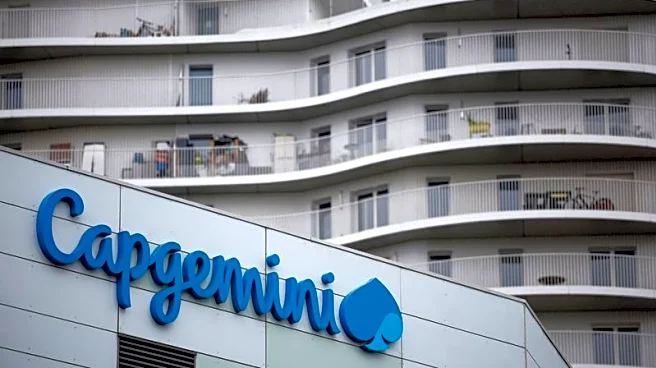What's Happening?
Luca de Meo, the incoming Chief Executive Officer of Kering, has outlined his strategic vision for the luxury group during a shareholders' meeting. De Meo emphasized the need for 'clear and strong choices' to streamline, reorganize, and reposition certain brands within the company. He acknowledged the challenges ahead, including a significant drop in first-half net profit and revenue, and stressed the importance of swift, efficient, and decisive actions to consolidate the company's foundations. De Meo plans to present a detailed strategic plan in spring 2026, focusing on creating a more integrated and agile luxury group. His approach will involve collaboration across management, employees, partners, suppliers, and shareholders.
Why It's Important?
The strategic reorganization announced by Luca de Meo is crucial for Kering as it faces financial challenges, including a 46 percent drop in net profit and a 16 percent decline in revenue. This move is aimed at revitalizing the company's brand portfolio and enhancing its competitive edge in the luxury market. The emphasis on agility and integration reflects a broader industry trend towards adapting to changing consumer preferences and market conditions. Successful implementation of these strategies could lead to improved financial performance and strengthen Kering's position in the global luxury sector, benefiting stakeholders such as shareholders, employees, and partners.
What's Next?
Luca de Meo will officially assume his role as CEO on September 15, and he is expected to work closely with Kering's teams to develop the strategic plan for presentation in spring 2026. The upcoming months will likely involve detailed assessments of brand performance and potential restructuring efforts. Stakeholders, including shareholders and employees, will be closely monitoring the implementation of these strategies and their impact on the company's financial health and market position. The success of these initiatives will depend on effective collaboration and execution across all levels of the organization.
Beyond the Headlines
The strategic changes at Kering could have broader implications for the luxury industry, highlighting the importance of adaptability and innovation in maintaining brand relevance. Ethical considerations, such as sustainable practices and responsible management, may also play a role in shaping the company's future strategies. As Kering navigates these changes, it could set a precedent for other luxury brands facing similar challenges, influencing industry standards and consumer expectations.










